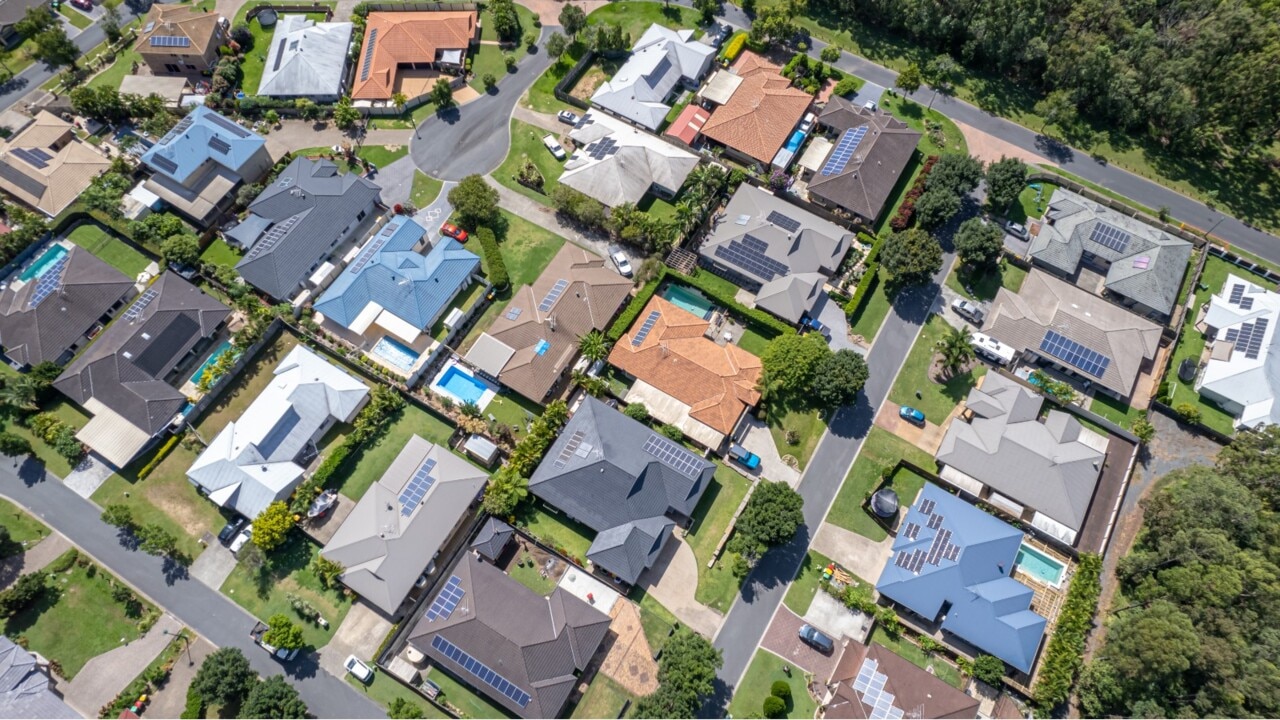
The way Joshua Funder sees it, the banks have abandoned old people opening the door for his Household Capital which is now working with Citigroup to securitise its $450m reverse mortgage book to expand its balance sheet.
Reverse mortgages are not new but for the battle-scarred banks it is perceived as exposing them to reputation risks, explaining their absence.
This financial year the industry is expected to write $1bn in new equity release loans, the biggest since 2007, but tiny compared to the CBA home loan balances at $577bn, the estimated $7 trillion value in Australian homes and $1 trillion owned by retirees.
New Zealand based Heartland is the market leader with $1.3bn in loans outstanding.
The flip side is the mortgages being placed by Funder have a loan to value ratio of just 20 per cent against the 80 per cent the banks start with on new home loans and with 2500 families on his book the four year old company is growing at 100 per cent a year.

Demographics and cost of living pressures tell you the home equity market will be growing fast as more people prefer to stay in their old home but maybe wants some more money in retirement either for their own lifestyle or to play mum and dad bank for their children’s first home.
As living costs rise some retirees are cash poor and asset rich.
Household Capital is 30 per cent owned by insurance giant Legal & General and 20 per cent by Helia (formerly Genworth) and has $600m in wholesale funding from IFM, Citi and private equity house PEP.
When the Federal Government stepped up its home equity package offering lower rates than offered on the market it provide some validation to the market while posing obvious competitive risks, being a low cost funder.
The concept is if you own a $1m house, you borrow $200,000 at 9.2 per cent but you don’t have to pay the money back until you sell your house.
Assuming the house increases in value by five per cent a year at age 65 you owe $200,000 with $800,000 of equity.
When you are 80 the value of the house would increase to $2.1m, your ownership has fallen from 80 to 62 per cent and you owe $790,000 but the equity is now $1.3m.
If the rate is seven per cent then by the time you are 80, you will own 73 per cent of a house worth $2.1m, you will owe $569,789 and the equity will be $1.5m.
The interest rate risks are obvious as are generous house price appreciation forecasts which explains why the banks are not keen on potential television appearances taking control of a pensioners house.
The banks exited the wealth market after suffering a regulatory backlash culminating in the 2018-19 Royal Commission.
Banks have lost control of home loan customers to the brokers who handle 71 per cent of
new loans and while their trepidation to enter the reverse mortgage market is understandable there is $3.5 trillion in superannuation and another $1 trillion in home loans so the gap being filled by Household Capital’s Joshua Funder is another opportunity lost.
Builder safety
Cost pressures are not going away and to help builders and developers manage better, former Melbourne footballer Clint Bartram has developed software to help manage the bills.
Paid Inc is the software developer and the concept is that if the property built costs $1m with a $100,000 concrete slab the first job — with the concreter to get $80,000 and the builder the rest — the software tracks the payment first to the builder then to the subbie so everyone knows where everyone stands.
Co-ordinated down the full project means the developer and the builder get transparency on progress payments and any missed schedules set the bells ringing early so adjustments can be made, with everyone working to the same end goal.
Paid collects a percentage of each payment which adds up to 0.22 per cent on the total project, or $220 on a $100,000 job.
The building industry tracks at the top of the list on business bankruptcies and missed payments to subbies which the software aims to minimise.
Thirty per cent of Australian bankruptcies come from construction, 67 per cent of constructions payments are late and 20 per cent of construction contracts end in dispute which creates uncertainty and a mass exodus from the industry.
The six-month-old firm has signed up over 1,000 builders so far.
Bartram played half back for the Demons for seven years until 2012 and is backed at Paid Inc by a high powered advisory board including former Bendigo boss Mike Hurst, former ME Bank boss Jamie McPhee and Holley Nethercote partner Paul Derham.
D-Day for Origin
Monday should be decision day on Brookfield’s $20bn bid for Origin, after the board rejected an even lower proposal from the Bermudans.
The spin was all about the new government capacity investment scheme for renewables, which arguably removes some risk on new investment — which means a lower reward and hence takes some value from the table.
Transactions costs if the deal is defeated are $77.7m but if it gets through they increase by 82 per cent, or $63.3m, to $141m.
If the deal is completed defence advisers at Barrenjoey collect an extra $26m and Jarden $12m.
When Brookfield flips the asset in five years as reported then more fees flow.
Origin chief Frank Calabria is sitting on $11.4m in long-term incentives, plus $2m in retirement pay.
Then there are the $36.3m in retention payments which are time based, to keep staff amid the uncertainty, so are paid if the deal succeeds or not.
The incentives to get a deal done are clear. As for shareholder value that is in fact the key issue.
Christmas competition clearance
The traditional Christmas rush should see some deals sorted by the ACCC after this week’s expected clearance of the Coles-Saputo plant acquisitions, which will see the retailer extend its control of the milk supply chain.
Other deals primed for decision in the next three weeks include a denial of Australian Clinical Lab’s Healius acquisition, clearance of the Viva-OTR deal (after they agreed to sell the bulk of the Adelaide sites to Chevron), and the Woolworths-PETstock deal, which will be lineball with the odds against.
ACCC chief Gina Cass-Gottlieb doesn’t like it when companies make a string of acquisitions without telling her and Woolworths is a behemoth in supermarkets so she will reluctant to let it go loose in the pet market.
The ACCC would much prefer organic expansion like Bunnings, which was once a hardware store but now calls itself “home and lifestyle”, with an extension of its household cleaning products to test its value proposition against former housemate Coles and Woolworths.
The pet friendly retailer is already a player in that market.
Vale Lewis Tyndall
Green Collar co-founder Lewis Tyndall died suddenly last week aged 65. A keen surfer, the Byron Bay based lawyer was a barrister for 20 years before pioneering carbon as a viable alternative land use. Together with James Schultz he worked with landholders and handled some of the first carbon agreements, lobbying government and connecting with institutional buyers in the Australian market to pioneer a new industry.
A barrister by trade, Lewis practised for 20 years in equity, commercial and environmental law.
A doyen of the industry, he will be deeply missed by all.



